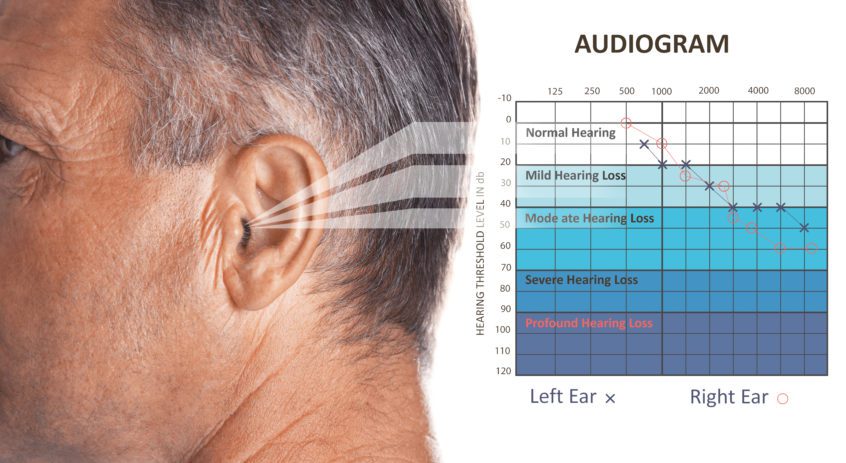When was the last time you had your hearing checked? If the answer is “Never,” you’re long overdue.
Actually, newborns are now checked for hearing loss while in the hospital, and many children have a basic hearing screening when starting school, or perhaps throughout their school years. But once we reach adulthood, we often forget about our ears and ignore possible hearing loss.
But your hearing is important. It’s one of your six senses and a key way we connect with others and the world around us. If your hearing starts to decline, so can your interactions at work with co-workers and at home with family and friends. And, there’s also scientific evidence that hearing loss is connected to a host of health problems, including dementia, depression and even diabetes and heart disease.
What’s the best way to stay on top of your hearing health?
Get a regular hearing evaluation. Though there are no firm guidelines on the age at which you should start having your hearing checked, many organizations advocate this should occur beginning at age 50, especially if you’ve been exposed to loud noises throughout your career, like machinery, or via hobbies, like hunting.
It’s a great idea to make a regular hearing evaluation a habit, like your other routine health checks at the dentist, eye doctor or physician for a physical.
Visit a Hearing Professional
If this is the first time you’ve ever had your hearing checked, it’s a good idea to see a hearing professional, like an audiologist. An audiologist is a doctoral-level professional who specializes in the diagnosis and non-medical treatment of hearing loss, tinnitus and balance disorders.
Audiologists receive extensive education in hearing and balance disorders. These professionals have earned postgraduate masters and/or doctoral degrees. A doctoral degree is now required for graduates practicing after 2012. Look for the initials Au.D., (Doctor of Audiology – clinical degree); or Ph.D. (Doctor of Philosophy – research and/or clinical research degree); to designate doctoral training.
Many audiologists, including all of the audiologists with Associated Audiologists, also have earned a Certificate of Clinical Competency in Audiology, indicated by the initials CCC-A after their names. This is a voluntary certificate issued by the American Speech-Language-Hearing Association (ASHA). Professionals who have been awarded the CCC-A have completed a rigorous academic program and a supervised clinical experience and have passed a national examination.
Hearing Evaluations
For accuracy, your hearing evaluation should be conducted in a sound-treated room using special earphones and equipment that has been calibrated to national standards. The hearing test begins with a thorough discussion about your symptoms, medical history, and any other concerns you may have. Depending on your hearing loss symptoms and case history, the audiologist may perform several different tests, which may include the following:
- Otoscopic examination to evaluate the status of your outer ear, ear canal, and eardrum.
- Tympanometry/Immittance testing to reveal the status of your middle ear system.
- Air conduction and bone conduction threshold testing to determine the softest sounds you can hear at different frequencies. This testing also reveals the type, degree, and configuration of your hearing loss. It is more than a hearing screening.
- Word recognition testing to assess your ability to understand speech when the volume of the speech signal is adequate for your level of hearing.
- Otoacoustic emission testing to differentiate sensory (inner ear) from neural (nerve) hearing loss.
- Loudness discomfort testing to measure your ability to tolerate loud sounds and identify the presence of decreased sound tolerance.
Following the testing, the audiologist will explain the results to you, usually in the form of an audiogram, and will answer any questions you may have. An audiogram is a graph which gives a detailed description of your hearing ability and which can be described as a picture of your sense of hearing.
If the results indicate your hearing is within normal ranges, the audiologist will likely recommend a follow-up schedule that’s appropriate to monitor your hearing, depending on the test findings, as well as your age and general health.
If the audiologist determines you have a hearing loss, they will offer more information about your hearing loss, and can make recommendations for hearing aids based on your needs, lifestyle and budget.



